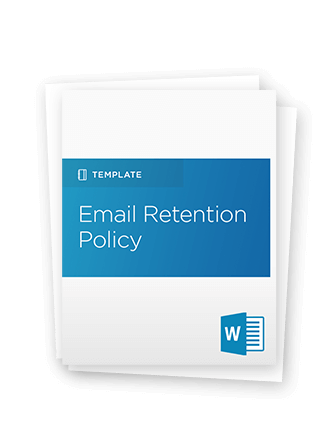Corporate Email Risk and Real Mitigation: Backups No Longer Are Sufficient

Once upon a time, there was only telephone, fax, and surface mail.
Scenes like this one were common: An IBM supplier of data storage ran a manufacturing plant in Asia. When the Asian or U.S.-based staff needed to communicate with each other, they talked by telephone, with the Americans staying late and the Asians going in to work early to accommodate time differences.
But in 1989, an email system was rigged up and suddenly, company-wide communication became much easier for everyone.You know the rest of the story. Every organization now depends on global email communication for efficiency and cost-effectiveness. The Radicati Group reports that, “The total number of worldwide email accounts is expected to increase from 3.3 billion accounts in 2012 to over 4.3 billion accounts by year-end 2016.”
Moreover, nearly everyone – from children to the elderly – knows how to use email.
Recently we heard that someone who was unhappy with one mobile phone customer service experience, found the CEO’s email address online and sent him an email message. He responded with his own email message two hours later. He must have emailed his Vice President for Customer Service, who called that customer shortly after. Talk about customer retention tactics!
Yes, email serves companies and customers equally well. But there are risks, too.
An explosion of email brings higher risks
- We used to worry about spam, period. We still do. Yet, over time, email risks have multiplied exponentially, to include malware, viruses, phishing, and more recently, violations of protected information such as unencrypted medical patient data.
- We used to send and receive email from one desktop computer. With the explosion of email-ready devices in use now, all of which easily read HTML messages, users are more vulnerable than ever to having their accounts hacked into.
- In the wake of the debate over the digital gathering of personal data, governments in the U.S. and abroad are looking at new laws (or now enforcing laws already on their books) to protect individuals’ private information.
- Email is discoverable information in a pending lawsuit. Trying to delete corporate email that may be needed in the future is yet another risk. Worse, the sheer volume of saved email makes it difficult to retrieve specific data.
Risk mitigation that works
- Start with the basics. Educate your company’s users on safe, secure email etiquette. Store anti-virus software and sophisticated spam filters on computers and if possible, devices.
- Go beyond just backing up your system. Partner with a reliable cloud system that can: store and quickly access your emails for years, keep your emails secure from threats or deletion; and comply with all local and federal laws for email archiving.
Intradyn was the first email-archiving solution provider. We remain at the forefront of the archiving marketplace for our customer service and email accessibility, safety, and security. Please contact us to learn more about our secure email archival system.

